|
The following entry is probably not for everyone. But, since this is a post about gatekeeping--specifically in terms of who *gets* to write books in a specific genre--I can't identify who it's not for. Let's just say that there are discussions within about sexual orientation, gender identity, butch/femme stereotypes, romance vs. erotica, and even what we mean by "relationship" and "relations."
Some potential trigger words that may appear: TERF, trans, lesbian, LGBTQIA+, gatekeeping, queer--you get the idea. If that list causes you pause you may want to move along. Also, I totally get if this is a TLDR; for people. I'm going to put in some headings that let you skip around a bit.
Why I started reviewing books on Reedsy Discovery
You may know that I'm a reviewer over at Reedsy Discovery. My choice to join their review team came about after I submitted Elegant Freefall for review upon release. While the review I got was positive, it was all of three sentences long. Upon seeing the reviewer's bio, I realized their reading preferences were primarily for middle-grade and young adult books. I went on a search to see if there were any reviewers who focus on LGBTQIA+ fiction and nonfiction. When I came up empty handed, I signed on to be a reviewer. I am pretty busy in my normal life so I decided my primary goal was to review books by writers who were "like me" and writing in my general area of LGBTQIA+. My focus was on a pretty narrowly defined #OwnVoices category. How queer is queer enough? One of the first books I reviewed was Cooper Beckett's Osgoode as Gone. Before I picked it up, however, I struggled a bit. I went to Beckett's Amazon sales page and noticed he describes himself as a "queer, non-mongamous writer." Among his other offerings were books about swinging and polyamory. Not really my thing. (In fact, if I were to be "triggered" that probably would have done it, given Baby Huey's manipulations in my past life--a whole different issue, though.) My conflict came, in part, from this idea that here was this guy in a heterosexual marriage (he's pretty transparent about that) who is writing a lesbian character (Osgoode turned out to be far more likely to identify as pansexual, really). I decided I wasn't going to read the book. I kept reading the opening, though. No one else was picking it up to review. So, I read it. And I thoroughly enjoyed it.
Flash forward from April 2019. In the months between that review and now, I've read and reviewed a variety of books for Reedsy--coming out stories by women, memoirs like Tim Selig's Tale of Two Tims, thriller/paranormal books like Kory Shrum's Carnival, and even a cozy mystery written by Steven Schatz that uses the word "dyke" in the title that includes plenty of drag queens and puts the lesbian in girl drag at one point.
Mia Archer is a MAN! Recently, someone struck up a debate on social media about how we "feel" when we find out that a writer we thought was female turns out to be a cishet man. Specifically, Mia Archer as the pen name for Andrew Beymer. The responses were fast and furious and included such sentiments as "how dare he pretend to be a woman!" and "men love differently than women." Some readers went so far as to say they would read lousy writing from self-identified lesbians before they would ever give a "man" a penny. In fairness, before I really jumped into the discussion, I took a little field trip. Here's what I immediately found when I went to Mia Archer's Twitter page.
And when I went to Beymer's Twitter page:
Is Mia Archer another Sorcha Rowan?
Before I go any further, let me give a little backstory. Back in July of 2020, it was revealed that a lesbian erotica writer, Sorcha Rowan, was a cishet man. See Caitlyn Lynch's piece about that controversy. To sum up here, the person who was claiming to be Sorcha Rowan: 1. Did not acknowledge Sorcha Rowan was a pen name. 2. Intentionally interacted with readers on the Internet and through sexting as a lesbian woman. 3. Intentionally posted social media images and on their author page pictures of a single woman (not book covers, not avatars, not abstract images). So, given this information it's pretty easy to see that Beymer isn't doing the same thing. Still, there were concerns in the group because Mia Archer's sales page on Amazon did not identify Beymer as the person behind the pen name. As a reasonable human being and writer, I responded in the social media thread about Mia Archer being "a man" by suggesting that people who "felt betrayed" might reach out to Beymer on Twitter and ask him about his sales page, suggesting he update it. Someone responded and said they didn't feel right doing it because they are not a fan--I totally get that. And, I will admit that while I apparently downloaded a Mia Archer that was probably a freebie on Book Bub a couple of years ago, I hadn't read it. So, I waited, figuring that the OP would reach out to Beymer and there'd be resolution. What happened instead was a lot of TERF dog whistling. One of the posters who was outraged enough about his "pretending" and "lying" because no man should use a female pen name EVER posted the same question in multiple groups I was in at the time. People were reacting to the OP, agreeing he was a liar and a cheat. Most didn't look at the fact that he was transparent on Twitter, nor did they discuss any merits (or lack thereof) of the books themselves. When the discussion just kept going and more cries of "liar" and "exploiter" were made, as well as sweeping statements about all hypothetical books by anyone who is a man, I went on Twitter and asked Beymer myself. You can see the interaction here. And, that interaction led to this.
Victory, right? Well, one might think. But no. When I shared the good news in the threads that Beymer had been kind, transparent, and thoughtful and had gone out of his way to immediately fix the issue, I was repeatedly scolded for literally saying "private facebook group" and paraphrasing the concerns brought up about his use of the pen name.
The reaction made me think of an old Tribe 8 song.
"Dead Clothed Boys" & Tribe 8: Stop with the Blanket Statements
I do love me some Tribe 8. And, even though the song above seems to suggest violence against men is ok, people should really know more about the band and the context of the song before deciding that. In a world of "truthiness" and in an election year, we owe it to ourselves and each other to be conscious consumers of media. Tribe 8 created a huge controversy at the Michigan Womyn's Festival in 1994 after some on-stage antics with a strap on. From Neva Chonin's article about the documentary Rise Above:
The trailer for the film is useful here, as is the knowledge that in 2013 Michigan Womyn's Festival banned transwomen from attending.
Breedlove is still an activist and describes in the following clip the ways in which they feel excluded in just about every "group." She rightly calls for stopping with the "blanket statements."
Silas "Flipper" Howard went on to collaborate with Harry Dodge (author of the recently released My Meteorite and partner of Maggie Nelson who wrote about their relationship in The Argonauts) on the wonderful film By Hook or By Crook. Not coincidentally, Howard has worked on Transparent which had an episode ("Man on the Land" Season 2, Episode 9) about the ban. Note: Howard was not the director of this episode--Jill Soloway directed it. Howard has gone on to work on shows including The Fosters, This is Us, and Pose.
I bring these things up because it's pretty clear that even self-identified dykes who write songs that play on the language of "live nude girls" and turn it on its head are accepting of a variety of identities and representations.
"I don't want to support men but I don't want to have to research who I read." This idea (which is my own paraphrase of the IDEA, not a quote of anyone's actual words) is an oxymoron. While I totally support conscious consumerism and deciding who our money goes to, when you make that POLITICAL choice to only support women writers (like it or not, that is political) then it becomes your RESPONSIBILITY to know who is creating the work. Ironically, because of this aversion to learning about authors, had I not told the group the good news likely NO ONE would have known that I tweeted Beymer. Instead of saying "Oh, cool" and leaving it at that, members of the group attacked me, saying things like "What is said in group stays in the group" even though I didn't quote any words but my own, despite the fact the original question calling out Beymer was posted in MULTIPLE groups, and despite the fact the original post went against group policies and "called out an author."
I can't keep up! Too Many "Labels" but I only read "Real Lesbian Women"
Before I talk about male privilege, I want to address some dog whistles. In the discussion that unfolded some writers mentioned that the term "woman" did not apply to them as an identity. Some posters identified as non-binary, others as MOC (masculine of center), and others as transwomen. Because one of the original instigators (the one who cross posted the *question*) decided to tell me that only when men start menstruating or worrying about sexual assault can they start writing lesbian fiction (whatever that is--I mean don't we want diversity in all fiction?), the question of who was truly considered a "lesbian writer" or a "lesbian reader" came up. Behind the scenes I was being contacted by folx who have had sex with women but never been in romantic relationships with them. Others contacted me about the group being very anti-trans in the past and of feeling like they weren't included fully--that they didn't really interact with the group or had blocked a lot of members because of their "women only space" rules. Then the "I don't like labels" comments started. Apparently, it's ok to say "lesbians only" but not believe in labels. I'm not sure how that works. Also "real lesbian women" is a pretty narrow definition. What you classify as a label, others see as an identity. One of the last comments before I jumped ship was full of "enough with the labels" and indicated that they thought the group was for all women "whether by birth or CHOICE" (caps mine). Um--what? You can't beat the drum that sexual orientation is NOT a CHOICE and say that transwomen "choose" to be women. You can't say every person assigned female at birth is a "woman by birth" either. The thing is you can't say a space is for "real lesbian women" out of one side of your mouth and say "stop with the labels, they are meaningless" on the other. You also can't equate menstruation with womanhood and then say "of course I welcome transwomen." You can't refer to members of the group as "ladies" and say you welcome non-binary folx. You can't keep focusing on things like strap on sex as only being ok if the one wearing the strap is "not too femme" either. You also can't erase bi, pan, and asexual people by saying books about these characters can only be written by and for "real lesbian women." Love is Love. I am not personally a fan of that statement (just because it is way too simplistic as an argument for marriage equality). But we hear it all the time and queer people often use it to argue that they are fully human--their "love" is the same as hetero-love, for example. Well, if you are making that argument don't come at me or any other writer with "Men can't know what it is like for two women to be in love." Don't come at me with "Men are more physical/sexual and can't write emotional works." These are literally the kinds of arguments in the debate over Mia Archer. Once it wasn't enough that Beymer made it clear and transparent on his Amazon Author Central page, this is the direction the discussion took. Another problem with this argument? Women did take pen names that were masculine because women were seen as "too emotional" to be good writers, because the "male sphere" was too serious for the ladies. Some readers even will turn away from a book with gay characters and get real mad about it. Take a look, for instance, at the outrage over Jodi Daynard's A Transcontinental Affair. This book was written by a cishet woman and was a Kindle First Reads book--which means Prime members got to read it for free. However, they also were not shy about hating it BECAUSE they felt "hoodwinked" by the lesbian romance (even though the blurb makes it clear it is a same-sex love story). And, of course, we can't forget One Star Charlie, the person who just rates any lesfic book they find on GoodReads with one star and no commentary. We should be better than Charles.
Privilege
A recurring theme in the discussion was "he shouldn't use a woman's pen name because privilege." They argue that it's always dishonest for men to write as women because pen names have a history of being women trying to get published when doors were closed to them. That might have rung true before indie publishing. Archer is indie. He's not with a Big 5 house, nor is he even publishing through Harlequin or Carina (a subsidiary of HRN). As far as I can tell he's never used the #OwnVoices in tweets or pitches. If someone shows me screenshots to the contrary, I'll address this, of course. Here are some articles about men using female pen names. Note that in romance (which is the genre identified in the start of this whole *debate*) writers have long been advised to write as women:
Several posters were mad because he's making money off that name in a market that is already swamped and narrow.
NOTE: I get that Transparent has critics and that there were issues with casting. That's not my point here--and I'm OK using the "Man on the Land" episode because of the involvement of nonbinary and trans folx behind the scenes--Soloway and Howard included. In that episode of Transparent, the characters tell Moira that she can't be there because as a seen as male in her earlier life she had "privilege" that AFAB (assigned female at birth) didn't. Her response is "I was in too much pain to experience what you are calling privilege." The point is made, and eloquently, that privilege and pain are two separate issues. That even though Moira was in pain, as a man others conferred that privilege and all its trappings on her. She was limited by her pain--internal--while still being rewarded for the external perception of her "maleness." One of the women around the fire says transwomen are excluded, "Because we've all been raped." Moira rightfully responds with, "I didn't rape you." This scene is important for a lot of reasons, but it boils down to this: individual actions and individual experiences are important--we can't say "I won't read any books with lesbian characters no matter how good they are because they are written by men." None of us have the same level of privilege, none of us have the same pains, none of us experience emotions or even physical pleasure the same way. I get it. A person who moves through the world perceived as a white cishet male has privilege that many of us don't. But, as someone with disposable income and a level of literacy that makes reading enjoyable to you, as well as the time you spend voraciously reading lesbian romances (or whatever you read), you also have privilege. Because you have access to technology and to a group of "like minded" readers on social media, you have privilege. But with privilege comes responsibility. Specifically, don't be a one-star Charlie. Don't call out an author individually and make them the "poster boy" for "exploitative male" when they do everything they can to address the problems you point out to them. Look, I get it, we all have reading preferences. My time for reading for pleasure is limited when I compare it to the reading I do for reviews, for my academic inquiry, fr my freelance writing gigs, for my work as an associate editor, for my pro-bono fiction editing for people who are trying to improve their writing. So, when I get to CHOOSE what I read with no strings attached, I am choosy. I also am very choosy on what I spend my money on versus what I check out from a legitimate library (versus a pirate site). And when I get freebies from Book Bub and hate the book, I don't review it. And I certainly don't try to get a virtual mob together to burn the author at the stake. In other words: I can totally understand the philosophical quandaries related to privilege and men using female-sounding pen names. However, we must evaluate individual situations individually. Identifying ONE writer by name and stirring up people into a frenzy is not the same as a larger discussion of the appropriateness of gender-swapping in pen names. Simply saying "I would never read or buy a book by a man who writes female-identified queer characters" is fine as a preference, but when it becomes a mob mentality and there's no consideration of the actual body of work, the writer's allyship and activism, or of the writer's willingness to address concerns, that's something else altogether. That's mob mentality that shows a lack of ability to think critically and that places one in the perpetual position of victimhood. And, it is harmful to those writers in the group who don't identify *exactly* the way you assume they should or do. That mob mentality leads to writers staying closeted and potentially not writing important works of their own because they challenge their reader base to go beyond trope-driven Gold Star AFAB romances. Why am I so fired up about this? I care because in a group of THOUSANDS of members it is devastating to a writer when someone calls them out and misidentifies them as a liar, voyeur, exploiter, Sorcha Rowan wannabe pretender. I literally saw people posting "I don't know this person and never read their work but they are on my NO list now." Given what I said earlier about how little sales are required to be in the top rankings in "lesbian fiction" on Amazon, it would take very little pressure on a writer who is top ranked by people who actually read and enjoy their books to tank because of reviews by people who try to "out" the writer on Amazon by leaving one star reviews and saying "he's a man!" as the reason. If you can't see past the "dude writing as a gay lady" issue, just look at how Jodi Daynard's book has 20% one and two star reviews that are based solely on the fact the book is about a couple of lesbians. Even though there is no sex in the book (perhaps had there been people would have not rated it at all and loved it secretly, thus doing that sort of fetishization that others accuse Beymer of). Finally, I've said this in interviews before: While I often classify/categorize my fiction as "lesbian" I don't really like that category. When people complain that there needs to be better classification to distinguish from "gay" and "lesbian" literature on Amazon, I groan. Shouldn't we be at a point where we all want literature that reflects the progress we've made? And by "we" I mean ALL of US. Even the largest awards-granting body for lesbian literature allows books written by men to be eligible. I wonder how mad those people would be if they found out a man writing under an "gender ambiguous" pen name like "Pat" or "Chris" or "Terry" won a Goldie? While I love to read Vin Packer and Ann Bannon those earlier books don't represent my present or my future (at least I hope not). And I would be limiting myself a great deal if I never read books by anyone who is not a "real lesbian woman" who writes female queer characters. Under the sort of criteria expressed in the group, I'd miss out on Poppy Z. Brite, T. Cooper, Caitlin Kiernan, and even mainstream writers like Michael Chabon. And there are a lot of TBRs for when I get time to read stuff that is my choice again by nonbinary writers like Anna Zebo and A. L. Lester. I know and love a lot of straight cis people. I also write characters that reflect those people, as well as characters who are probably gayer than I am. My current WIP won't be classified as lesbian, lesfic, or wlw. In part, that's because the protagonist who is quickly becoming the focus is a straight cis woman. There are characters who identify as lesbian and pan, too. I think one reason that book keeps stalling for me is because it is totally outside the realms of my other books--straight characters get equal and perhaps MORE time than the gay ones. I think that most of us write to "tell rollicking good stories with characters who happen to be gay or bisexual (and sometimes gender ambivalent)." I'd hope that readers would be excited by that rather than finding "reasons" to exclude us from their TBRs that have nothing to do with what's between the covers of the book but that are all about what they assume we have between our legs. But, I can also say without hesitation that I'm transparent. There are stories here about my past life, and despite the idea that "what happens here stays here" I will confess that there is likely a photo of me on a toilet in a long gone strip club on Bourbon Street somewhere on the Internet. Maybe not. This was before cell phone cameras were everywhere and I think he was using a disposable camera. But decades passed between now and then and I was a bit drunk and just trying to pee when the dude barged in and snapped the picture. Maybe he dropped the camera and it got swept up and put in the trash. But even then--before I was out to the world and students still called me Mrs rather than Dr and immediately asked how many kids I had and what my husband did--I knew that "what happens here stays here" was a myth. One final thought--the loudest gatekeeper in that debate has very little digital presence. Whereas Beymer and I have a consistent presence (I even use the same few pics in my media so I'm recognizable regardless of platform, for instance) the person screaming the loudest and name calling Beymer has no actual identifying things on their social media pages. They have no individual website, they have no blog under that name. For all I know that person is a 15 year old cishet guy in the house down the street who is into cosplay and making haunted house videos under a different identity. Wouldn't that be rich? Note: I use male pronouns when referring to both Andrew Beymer and Mia Archer, as those are the pronouns Beymer uses.
1 Comment
And a couple of caveats: 1. While I don't hold Janine Cummins responsible for her publisher's actions with the barbed wire and presenting her as fully in touch with her Puerto Rican heritage and her "undocumented" (Irish) spouse. I do find her responsible for not raising a huge stink about the publisher doing those things. I have no plans to read _American Dirt_ but my issues are more with that deception--NOT that Cummins wrote the book itself. 2. J. T. LeRoy, Sorcha Rowan, and even Jessica Krug weren't "pen name" issues any more than Rachel Dolezal was just lying by omission. Those instances are direct manipulations by people acting out as someone else with the intention of gain. 3. Let's not forget, too, that we can't bitch about the privilege a white guy has if he is literally "giving up" that privilege by taking on a female pen name. That logic is all wacky. Like he's putting on the "privilege" and "credibility" that comes with being an out queer (female identified) writer? Where is that mojo and how do I cash in my credits toward best sellerdom?
Reply
Your comment will be posted after it is approved.
Leave a Reply. |
Archives
January 2024
Categories
All
|
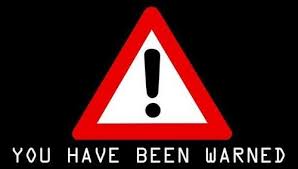
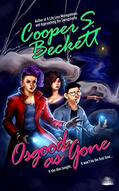

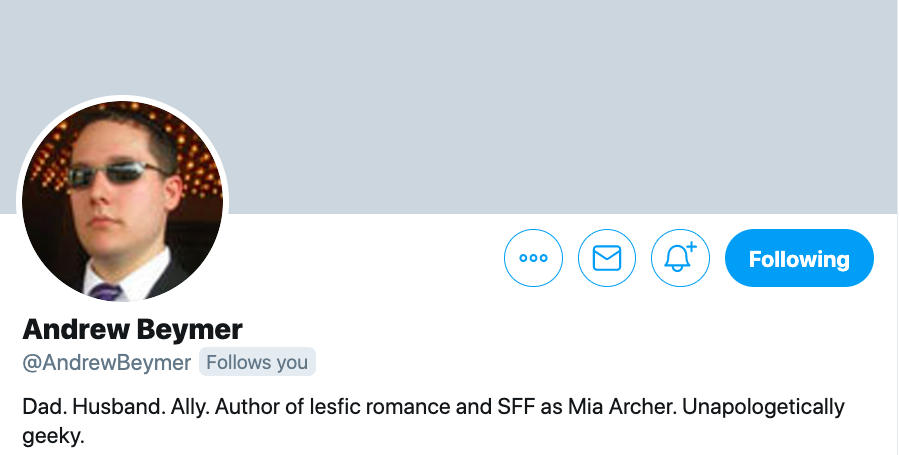
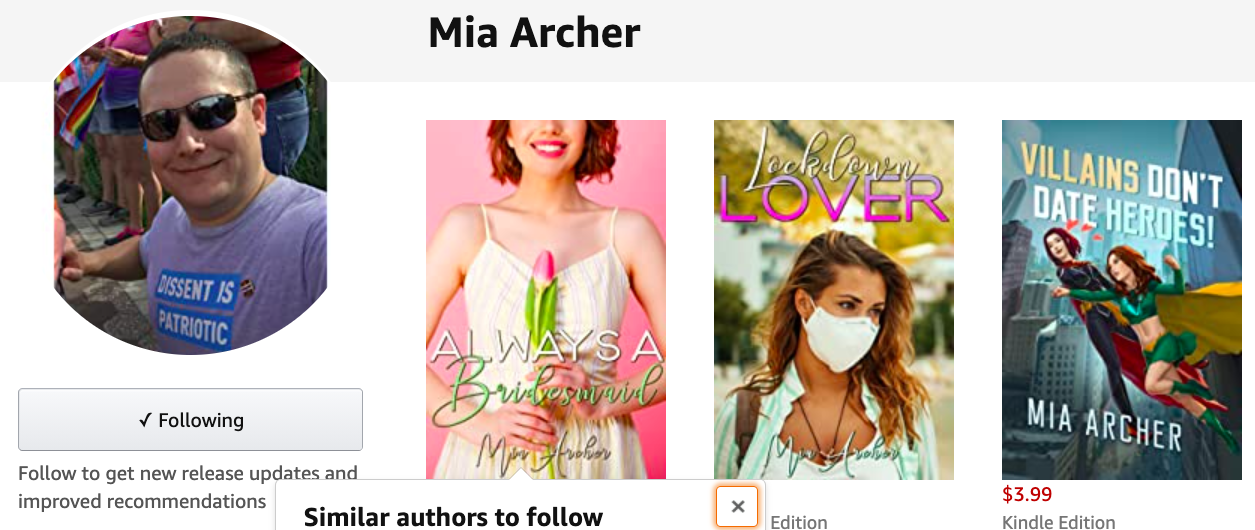
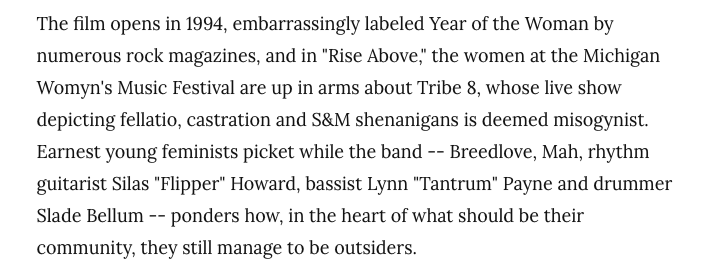
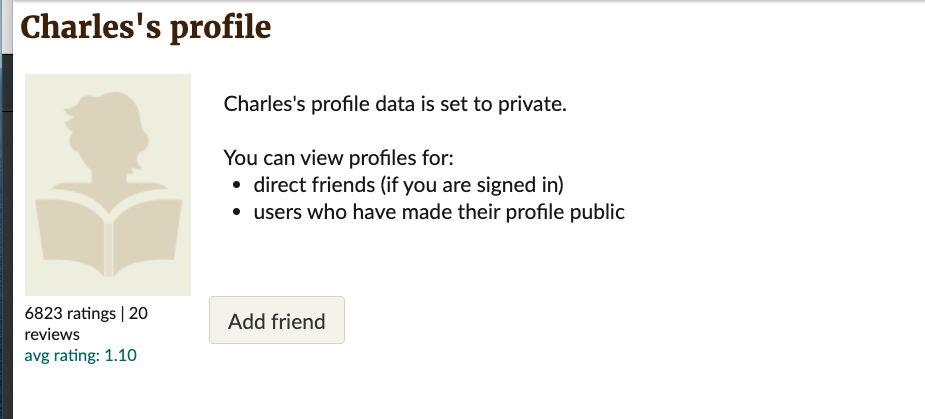
 RSS Feed
RSS Feed